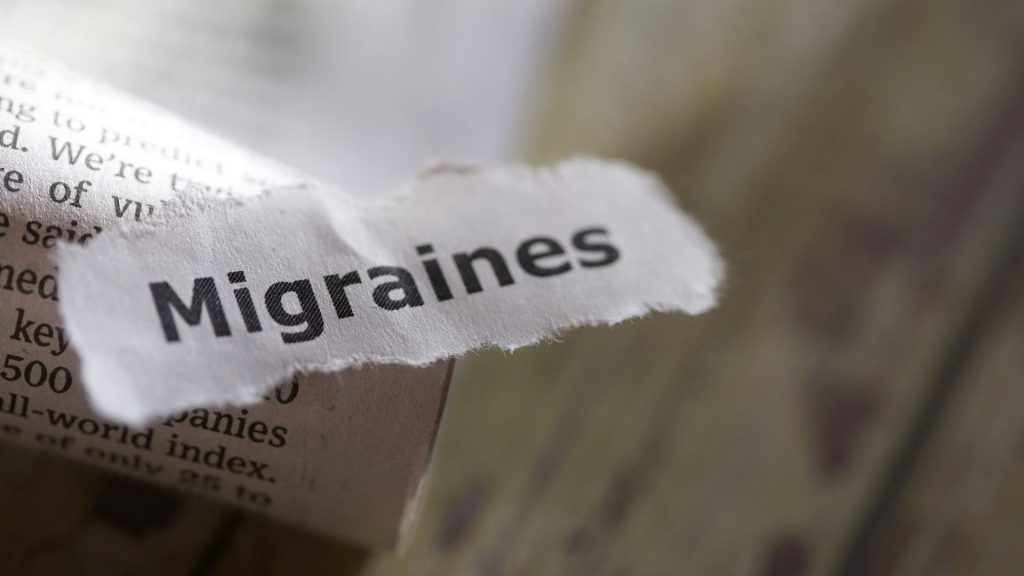No cure exists for migraine, but lifestyle modifications and medications can help control headaches. The key is identifying your triggers – that means tracking headaches and warning signs through an app diary or physical notebook.
Preventive therapy includes taking daily medicines to decrease both the frequency and severity of migraine attacks. The Food and Drug Administration (FDA) has approved two drugs specifically designed to achieve this purpose: Erenumab (Aimovig) and Galcanezumab (Emgality).
Avoid Foods That Trigger Migraines
Studies show that migraine is mostly hereditary; however, healthy diet and regular meals can help lower risk and avoid attacks. Food triggers may include alcohol, aged cheeses, chocolate, and caffeine.
Avoid MSG (monosodium glutamate), which is found in many Asian food items like soy sauce and instant noodles, as some individuals may be sensitive to its presence.
Watch out for histamine in red wine and tyramine in cheeses such as gorgonzola, camembert, cheddar, feta and mozzarella; both can cause problems. This can be particularly troublesome among cheese enthusiasts.
An excessively salty diet may also contribute to headaches. To stay clear of headaches, be mindful of food labels and choose low-sodium items like fresh produce, meat and whole grains that contain less sodium. A diary should also be kept to track when and what caused headaches – this may help identify possible triggers of migraine attacks. Elimination diets where one food at a time is removed may also prove effective at pinpointing potential food triggers; particularly helpful for migraine attacks. If this doesn’t help pinpointing them, other causes may include stress or lack of sleep as possible causes.
Get Plenty of Sleep
Sleep can help alleviate migraine symptoms, yet many struggle to achieve quality restful sleep. Altering your sleeping habits may take effort but will likely reduce migraine frequency and severity, according to studies.
Migraines and sleep are both controlled by parts of the brain that share similarities, making both potentially interdependent. A lack of restful slumber could even worsen your headache.
Sleep hygiene is key to having an uninterrupted and restful night’s rest, and caffeine and alcohol should be avoided eight hours before going to bed as these substances disrupt deep restful slumber, which allows your body to heal itself. Naps during the day should also be avoided since they make it more difficult to fall asleep later at night. To achieve optimal restful restful restful restful restful slumber it’s recommended sleeping on your back with neck muscles relaxed ideally; sleeping this way also reduces strain on neck muscles while simultaneously relieving strain from neck muscles as well as tight temporomandibular joints (TMJ), avoiding tight temporomandibular joints (TMJ), which causes headaches.
Keep a Diary
Migraine attacks can significantly interrupt daily routines, making it hard to stay productive at work or enjoy spending time with loved ones. A diary can help identify possible headache triggers and find effective strategies to manage symptoms.
Tracking headaches through any means – paper journal, digital tool or smartphone app – allows doctors to gain an overall picture of their impact and identify treatments which may work. Diaries also give you peace of mind as you won’t have to rely solely on memory when remembering details like when and where the migraine began; location; intensity.
Keep a diary to track medications and non-medical methods of managing pain. Consistency is key; make an effort to record symptoms at roughly the same time each day so patterns become visible. A diary is also invaluable in giving healthcare providers a full picture of which treatments are working effectively for each individual.
Take Medications
If your migraines do not respond to over-the-counter pain medicines, prescription medicines such as triptans (which ease pain, nausea and sensitivity to light and sound) and preventative medication may help ease symptoms and lessen headaches.
Your doctor may prescribe an anti-migraine drug called CGRP to you that inhibits the release of inflammatory chemicals that contribute to migraine headaches. They may also suggest anti-nausea medicine available as tablets or nasal sprays.
Nonsteroidal anti-inflammatory drugs, like ibuprofen (Advil, Motrin), naproxen sodium (Aleve) and acetylsalicylic acid (ASA), are mainstay options with strong evidence from double-blind randomized controlled trials as they reversibly inhibit cyclooxygenase 1 and 2. Butalbital (Fiorinal, Fioricet and Pronal) and opioids may provide temporary relief but are less effective treatments than others for migraine treatment; your doctor may suggest preemptive treatment by taking medication just prior to being exposed to known triggers like exercise or menstruation.


